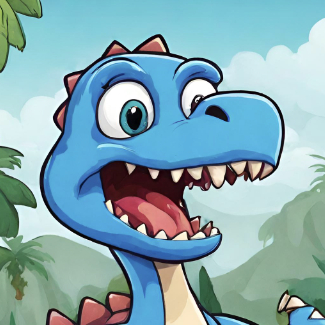Career Switching Into SWE / MLE From Finance
Hi All,
I expect to be starting at a Masters in CS program in the Fall, and am using this as a springboard to switch careers, after spending time working in finance (Investment Banking, Venture Capital). I am still hearing back from schools, but I expect the Master's program to be high quality (at best, UIUC, and at worst a top 30 program like USC / UChicago / Northwestern / NYU).
I only recently started to take CS coursework, in preparation for the MS in CS program, and I think I've covered much of the basic core (Intro Comp. Sci, Data Structures, Computer Organization & Systems, Discrete Math). I am wondering what I should be focused on to land a good internship in the Summer of 2026, ideally in Software Engineering or Machine Learning Engineering.
I'm curious if anyone has thoughts on:
-
Whether they've seen other career switchers transition successfully, and if it'll be harder in this market,
-
What Masters student recruiting looks like - are we viewed in the same "resume pile" as Undergrads?
-
Assuming I have no directly relevant work experience (I've worked in Investment Banking and VC, but not as a SWE) how can I gain experience that will make my resume stand out?
-
Are there any internship recruiting primers out there? E.g. where to apply, timelines, etc.
Thank you in advance!!
Discussion
(5 comments)- 315 days agoEmployee @ Robinhood
- It's a very uphill battle to pivot nowadays. A lot of larger companies have been burned from hiring pivots, so unfortunately the big tech dream will have more friction (the hiring bar is higher, the bar for performance when you get in is even higher). If you worked a solid career in finance, you'll be scrutinized less (since finance is seen as respectable from the eyes of most tech recruiters). I'd imagine that mid sized companies (sub 1000) will give you the most yield: big enough to support interns, but small enough to still have a culture of taking chances.
- You are viewed below undergrads and above bootcampers.
- You need to ruthlessly prioritze (classic big tech term) getting internships and strong side projects. Internships are harder to get traction on without experience, so I recommend side projects first. The course on side projects will be very helpful setting up a baseline around what to do with side projects. Devon Crebbin also hosts regular side project accountability hours. The general rule of thumb recruiters follow is: if real users aren't using your code, you might as well write no code.
- The top candidates generally apply for internships the year before the target start date & most of these positions are filled up by them. The earlier you apply, the higher the baseline "perception" will be. I've heard a few folks are setting alerts for when new positions open and immediately applying to maximize this perception to their advantage.
The bar is much higher for software engineers coming out of the pandemic, but it's not an impossible bar. The focus should be skewed heavily towards writing practical code that is exposed to real users (either through an internship or side projects actively used by real users). This will be a tough balance to strike with school & you will likely spend a lot of time planning around how to use your time. Before things take off too far with your career transition and school, I'd take advantage of Taro events (office hours, coffee chats, side project accountability) to get a better view on what to expect.
- 1
 15 days agoStudent [OP]Student
15 days agoStudent [OP]StudentThis was a truly awesome in depth answer - a great reality check for me. I so appreciate it!
- 3
 15 days agoThoughtful TarodactylTaro Community
15 days agoThoughtful TarodactylTaro CommunityI’m a SWE and fellow career pivoter (did an internal transfer 2+ years ago, recently moved companies and currently in an AI startup). I don’t have a CS degree (but my degree is in STEM) and some thoughts coming out of the job hunt - it’s tough, the technical bar is high but it’s not impossible. Interesting side projects proved to be really useful for me. Do leverage on your domain knowledge in finance too.
Be technically strong and know your fundamentals, I felt that its set an important first impression during interview loops (cos they probably cast doubt on whether you really know our stuff), leverage taro to look for buddies to do mocks with.
Another thing I did to gain more experience outside of my day job was to do some freelance work - but I think it’s worth being picky here, only do things which you feel will help you/you will learn a lot from that you can’t get day to day.
Hope this helps and best of luck!
- 1
 a day agoThoughtful TarodactylTaro Community
a day agoThoughtful TarodactylTaro CommunityWhen it comes to getting internships you need to hit the ground running on day 1. Most internships will start opening in august/sep for the next summer. You need to be already applying as you start your masters. You need a full resume with about 3 projects. Once you have that focus on Leetcode as that will be very commonly asked to get internships.
- 0
 a day agoStudent [OP]Student
a day agoStudent [OP]StudentThank you for both of your responses! I appreciate the perspective on the projects.
I've heard different things on applying right away when internship postings open - some say to apply early and others say you can be successful applying later as well. Imagine this varies for type of company. Do you have experience with internship recruiting / do you know if there are different "waves" of resume review? Ideally I'd like to have a bunch more classes completed on my resume with a good GPA, so applying in late Dec / early Jan would be ideal for me.